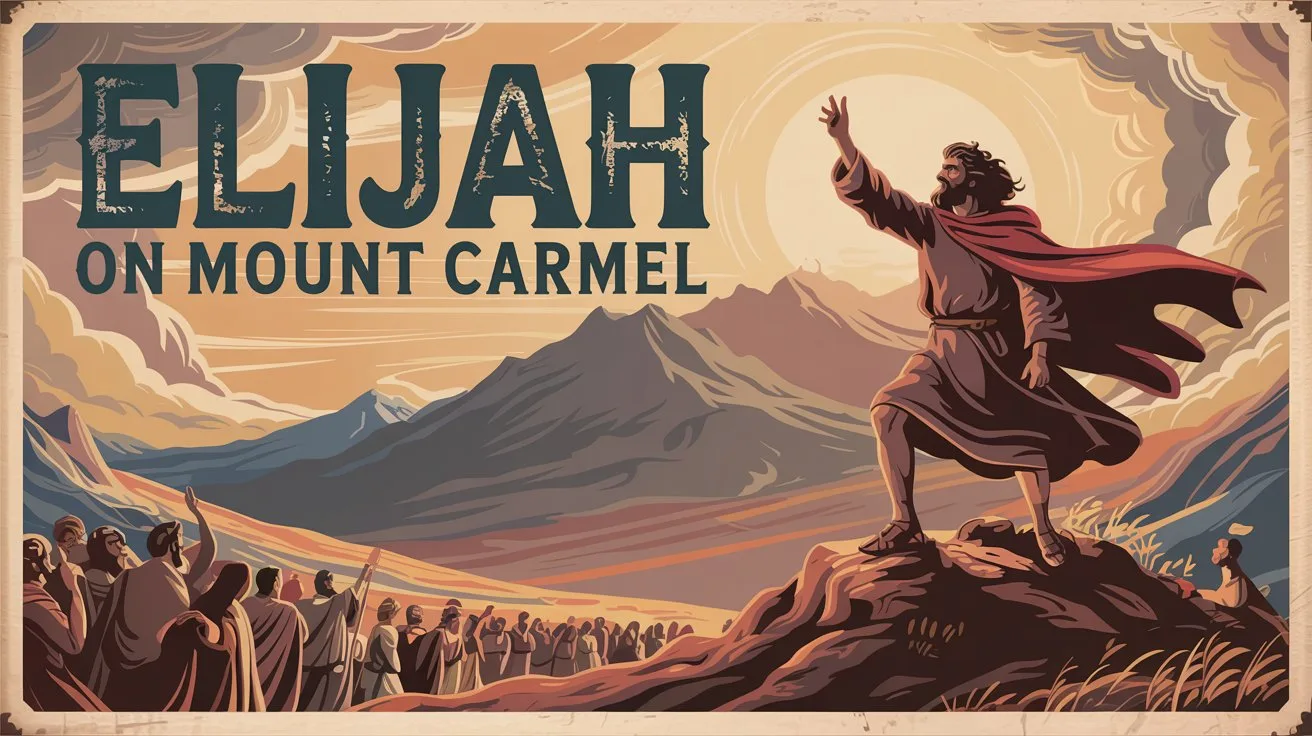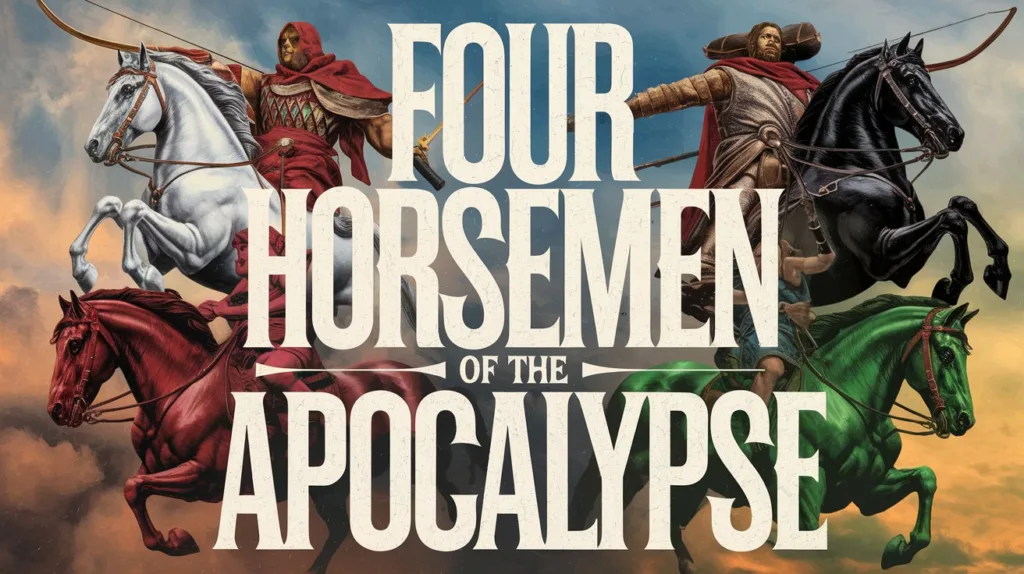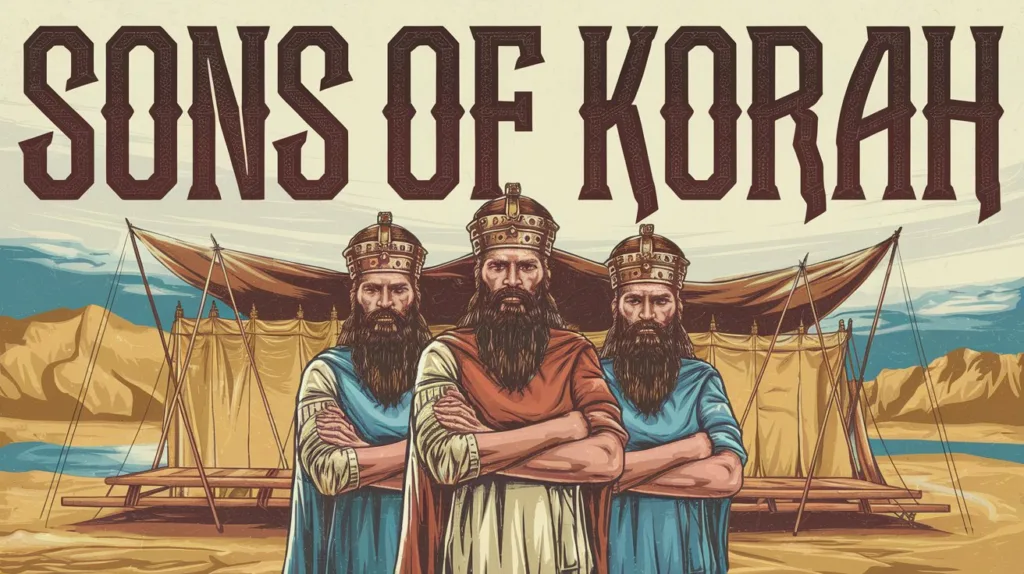The setting for Elijah’s showdown is laid out in 1 Kings 17–18. Israel is deep into apostasy under the rule of King Ahab and his Sidonian wife, Jezebel, who promoted the worship of Baal and Asherah. 1 Kings 16:33 says,
“And Ahab made a wooden image. Ahab did more to provoke the Lord God of Israel to anger than all the kings of Israel who were before him.”
God responded by sending Elijah to pronounce a judgment: a severe drought. In 1 Kings 17:1, Elijah boldly declares,
“As the Lord God of Israel lives, before whom I stand, there shall not be dew nor rain these years, except at my word.”
The drought dragged on for three and a half years (Luke 4:25, James 5:17), devastating the land and preparing Israel for a confrontation between the living God and the false gods.
The Call to Mount Carmel
In 1 Kings 18:1, God instructs Elijah:
“Go, present yourself to Ahab, and I will send rain on the earth.”
Elijah obeys, confronting Ahab, who greets him with accusation:
“Is that you, O troubler of Israel?” (1 Kings 18:17).
Elijah responds fearlessly in 1 Kings 18:18:
“I have not troubled Israel, but you and your father’s house have, in that you have forsaken the commandments of the Lord and have followed the Baals.”
Elijah then challenges Ahab to gather all Israel, the 450 prophets of Baal, and the 400 prophets of Asherah to Mount Carmel for a definitive test.
The Contest on the Mount
Elijah lays out the terms in 1 Kings 18:21:
“How long will you falter between two opinions? If the Lord is God, follow Him; but if Baal, follow him.”
But the people remained silent. Their hearts were divided, wavering, fearful: a nation in need of revival. The test was simple: Each side would prepare a sacrifice, but
“the God who answers by fire, He is God.” (1 Kings 18:24)
The Prophets of Baal: A Futile Cry
The prophets of Baal prepared their altar, slaughtered their bull, and began to call on Baal from morning until noon (1 Kings 18:26).
“O Baal, hear us!”
they cried. But
“there was no voice; no one answered.”
Elijah taunted them mockingly in 1 Kings 18:27, saying,
“Cry aloud, for he is a god; either he is meditating, or he is busy, or he is on a journey, or perhaps he is sleeping and must be awakened.”
In desperation, they leaped about the altar, cut themselves, and prophesied until the evening. Yet Scripture records again in 1 Kings 18:29,
“there was no voice; no one answered, no one paid attention.”
Baal was no god at all, just an invention of human wickedness and demons/”>demonic deception.
Elijah’s Turn: Rebuilding the True Altar
Elijah now steps forward, commanding the people to gather close. He repairs the altar of the Lord that had been torn down, taking twelve stones representing the twelve tribes of Israel (1 Kings 18:31). He reminds the people that they are still God’s covenant nation.
He then prepares the sacrifice and, in an act of extreme faith, orders four waterpots of water to be poured on the offering three times (1 Kings 18:33-34), drenching the wood, the bull, and the trench surrounding the altar. Humanly speaking, it was now impossible for fire to ignite the sacrifice. Elijah ensured that only a supernatural act of God could validate the offering.
Elijah’s Prayer: A Bold Appeal
Then Elijah prays (not a frantic chant, not a theatrical display) but a simple, powerful prayer:
“Lord God of Abraham, Isaac, and Israel, let it be known this day that You are God in Israel and I am Your servant, and that I have done all these things at Your word. Hear me, O Lord, hear me, that this people may know that You are the Lord God, and that You have turned their hearts back to You again.” (1 Kings 18:36-37)
Elijah seeks God’s glory, not his own. He appeals to God’s covenant, authority, and mercy.
God’s Fire Falls
Immediately, in 1 Kings 18:38,
“Then the fire of the Lord fell and consumed the burnt sacrifice, and the wood and the stones and the dust, and it licked up the water that was in the trench.”
The fire consumes everything: the offering, the stones, the water, the very dust. There could be no question: YHWH alone is God. The people’s response is immediate in 1 Kings 18:39:
“Now when all the people saw it, they fell on their faces; and they said, ‘The Lord, He is God! The Lord, He is God!’”
The Aftermath: Judgment on the False Prophets
Elijah commands that the prophets of Baal be seized and executed at the Brook Kishon (1 Kings 18:40), fulfilling Deuteronomy 13:5, which calls for the death of false prophets.
After the victory, Elijah climbs to the top of Carmel, bows low, and prays again (seven times) until a small cloud appears, heralding the end of the drought (1 Kings 18:42-45). Elijah then outruns Ahab’s chariot back to Jezreel, empowered by the hand of the Lord (1 Kings 18:46).
My Final Thoughts
Elijah on Mount Carmel shows us a God who answers by fire, a God who does not tolerate divided hearts. It reminds us that while the world shouts loudly for false gods, it is the still, hand of God that moves in power. Elijah’s faith was not in his own strength, but in the faithfulness of the God of Abraham, Isaac, and Israel.
When the altars of truth are broken down in our own day, we are called to rebuild them (stone by stone) with prayers that appeal not to our needs but to God’s glory. And in the moments when the world looks most hopeless, God still sends fire from heaven to awaken His people and prove His name great.
We, too, must stand like Elijah, even when we stand alone, trusting that the God who answers by fire is still our God today.





 Get the book that teaches you how to evangelize and disarm doctrines from every single major cult group today.
Get the book that teaches you how to evangelize and disarm doctrines from every single major cult group today.